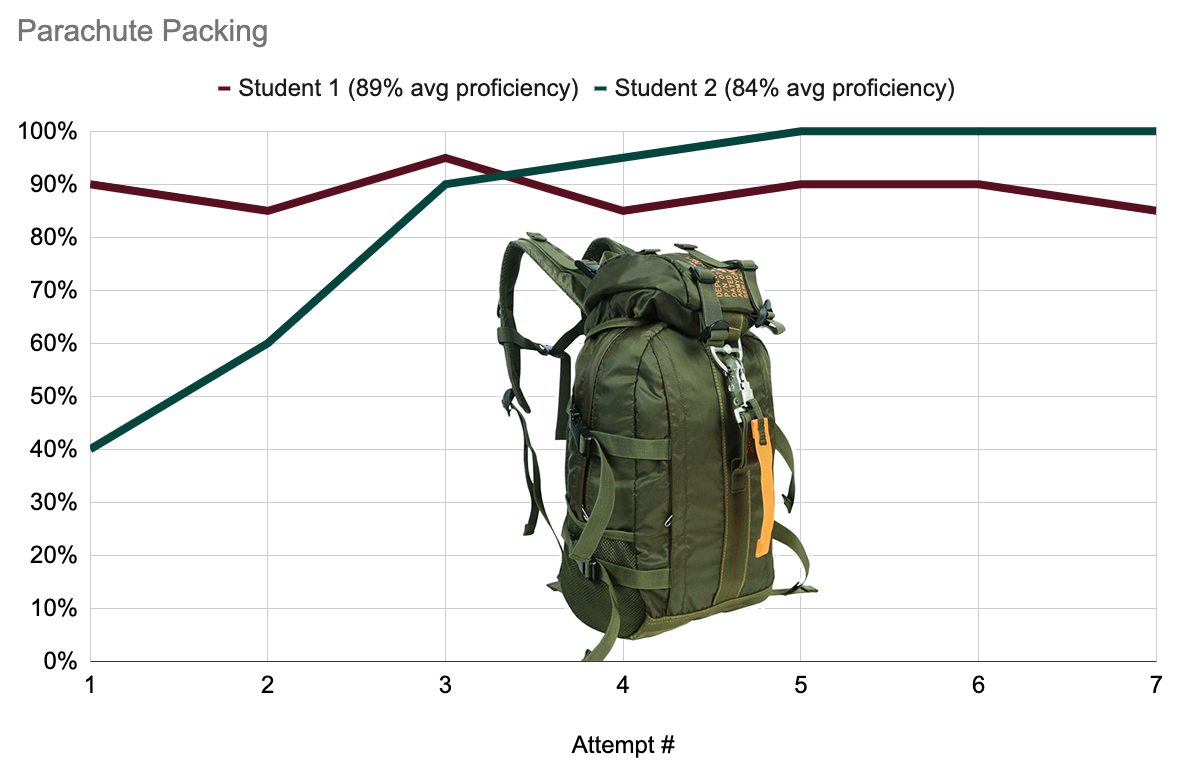I have enjoyed participating in conversations about student assessment in recent weeks. At the end of January, our JK-12 department chairs gathered for a day-long retreat at the MICDS campus residence along with Elizabeth Helfant, our Dean of Curriculum and Instruction, and Sally Maxwell, our Assistant Head for Teaching and Learning. Discussions about optimal approaches to student assessment across all academic disciplines were thoughtful and wide-ranging, and I was grateful that my schedule permitted me two opportunities to drop in on their work that day. Earlier this week, our Academic Leadership Team also addressed the topic, and it was in that exchange that I encountered for the first time in my career the Skydiver’s Dilemma.
Our Head of Upper School Scott Small, who is to credit for enlightening me (as he often is!), gave credit in turn to the education consultant Ken O’Connor for originating the Skydiver’s Dilemma. Imagine that two students are taught how to pack a parachute and then are tested on their proficiency. The first student scores well early and consistently on seven assessments of parachute packing prowess, earning grades of 90, 85, 95, 85, 90, 90, and 85. The second student, by contrast, struggles early but ultimately improves, earning grades of 40, 60, 90, 95, 100, 100, and 100 on the same seven assessments. As noted in the graph below, the first student earns a higher average grade than the second student, but if you are about to jump out of a plane, which one would you want to have packed your parachute?

The Skydiver’s Dilemma exemplifies the importance of being intentional rather than conventional in our assessments of student learning. At MICDS, we have frequent conversations about formative versus summative assessment practices—about using assessments to facilitate learning over the course of a curriculum unit, as opposed to using them exclusively to evaluate learning at the end of the unit relative to an external standard or benchmark. I am reminded of the work of Todd Rose, a former Harvard University professor and current CEO of Populace, who is consistently critical of “using math to abstract away from the phenomenon you are actually trying to understand.” Rose contends that the assessment practices of schools, colleges, and universities generally “rely on statistical methods that absolutely cannot tell you anything about individuals,” but “can tell you about groups—and then we just assume that it says something about individuals.” Rose is particularly critical of standardized assessments. “In education, the point should be the cultivation of human potential, the cultivation of uniqueness, and helping people convert that into contribution,” he says. “If that’s the aim, then a lot of traditional psychometric models fall short.”
I am traveling today and have less time than usual for writing. Before I conclude, though, I would be interested to know what topics you would like for me to discuss in future Friday letters. If you have any suggestions, please submit them via this online form, and I will certainly consider them.
I would also encourage you to consider reading with me either Foster by Claire Keegan or Unreasonable Hospitality by Will Guidara—or both of them—this spring. Please complete this form if you are interested in participating in an MICDS book club later this year. All members of our community are welcome to join.
My best wishes to you all for an enjoyable long weekend ahead—and if you happen to be going skydiving, may your parachutes be packed by Student Two! Always reason, always compassion, always courage. Happy Presidents Day.
Jay Rainey
Head of School
